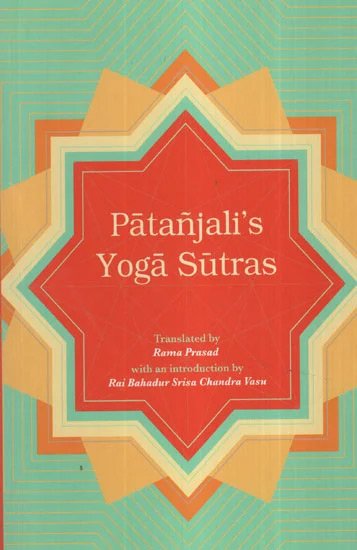Yoga-sutras (with Vyasa and Vachaspati Mishra)
by Rama Prasada | 1924 | 154,800 words | ISBN-10: 9381406863 | ISBN-13: 9789381406861
The Yoga-Sutra 4.4, English translation with Commentaries. The Yoga Sutras are an ancient collection of Sanskrit texts dating from 500 BCE dealing with Yoga and Meditation in four books. It deals with topics such as Samadhi (meditative absorption), Sadhana (Yoga practice), Vibhuti (powers or Siddhis), Kaivaly (isolation) and Moksha (liberation).
Sūtra 4.4
Sanskrit text, Unicode transliteration and English translation of Sūtra 4.4:
निर्माणचित्तान्य् अस्मितामात्रात् ॥ ४.४ ॥
nirmāṇacittāny asmitāmātrāt || 4.4 ||
nirmāṇa—of creation, created. cittāni—minds, asmitā—from egoism, mātrāt—alone.
4. Created minds proceed from egoism, alone.—164.
The Sankhya-pravachana commentary of Vyasa
[English translation of the 7th century commentary by Vyāsa called the Sāṅkhya-pravacana, Vyāsabhāṣya or Yogabhāṣya]
[Sanskrit text for commentary available]
When however the Yogī makes many bodies, then, are these bodies possessed of many minds or all of one mind only? ‘Created minds proceed from egoism alone?’ Taking as cause the mind which is egoism alone, he makes the created minds. Thence do the bodies become possessed of minds.—164.
The Gloss of Vachaspati Mishra
[English translation of the 9th century Tattvavaiśāradī by Vācaspatimiśra]
Now he considers the unity or manifoldness of the minds in the many bodies made by perfected powers, after the attainments have been achieved by the filling in of the creative causes (prakṛtis):—‘When however.’
Here if the bodies possessed more than one mind, the desire of each such mind would be different from those of the others; and there would not thus be obedience to the desired of one mind and no mutuality in relationship, just as in the case of two individual selves (puruṣas). It, therefore, comes to this that it is only one mind which pervades more created bodies than one, just as the light of a lamp is diffused on all sides and illuminates more bodies than one, Says he thereupon:—‘Created minds proceed from egoism alone.’
All living bodies, as long as they live, are found to be possessed of one ordinary mind each. Tako, for example, the bodies of Caitra and Maitra, etc. So are the created bodies (the Nirmāṇakāyas). Thus is it proved that each of these bodies has a mind of its own.
Says with this in mind:—‘Taking as cause the mind which is egoism alone.’—4.
